Ukraine Counters Russia's Iranian Drone Offensive
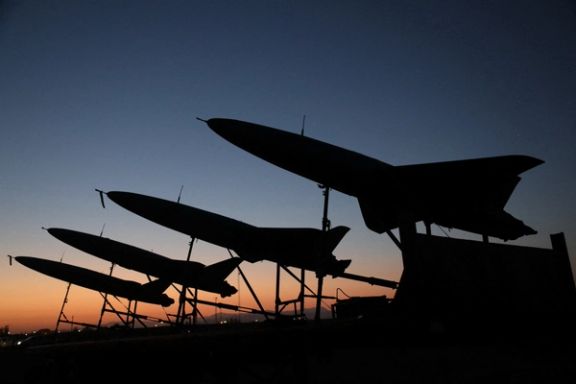
In the run-up to New Year's Day, Ukraine's Air Force reported the deployment of 90 attack drones by Russia, with 87 of them successfully neutralized by Ukrainian air defense systems.

In the run-up to New Year's Day, Ukraine's Air Force reported the deployment of 90 attack drones by Russia, with 87 of them successfully neutralized by Ukrainian air defense systems.
The overnight drone assault specifically targeted port infrastructure in Odessa, resulting in a fire in one of the port terminals, according to Ukraine's military on Monday.
The majority of the deployed drones are supposedly Iranian Shahed kamikaze drones, raising concerns among Western officials and analysts. Recent warnings suggest that Russia may be strategically reserving cruise missile strikes, potentially amassing stockpiles for more extensive assaults during the winter. Since mid-2022, Iran has been a crucial supplier of kamikaze UAVs to Russia, extensively employed for targeting civilian infrastructure and cities.
Priced at approximately $20,000 each, the kamikaze drones were utilized alongside missile attacks to overwhelm Ukrainian air defenses. In response to the relatively inexpensive drones, Ukraine had to deploy more expensive anti-air missiles.
In Lviv, debris from a Russian drone on January 1 ignited a local museum dedicated to the historical figure Roman Shukhevych. Despite the incident, air defenses were active, and residents were advised to seek shelter as Russian UAVs were reportedly identified in the area, with no recorded casualties.
On Friday, Russia initiated a major assault with 122 missiles and 36 drones against Ukrainian targets. The event marked the largest barrage in the 22-month war, resulting in at least 13 civilian casualties. Approximately 88 people were injured, and an unknown number were trapped under rubble during the 18-hour onslaught, according to Ukrainian officials.
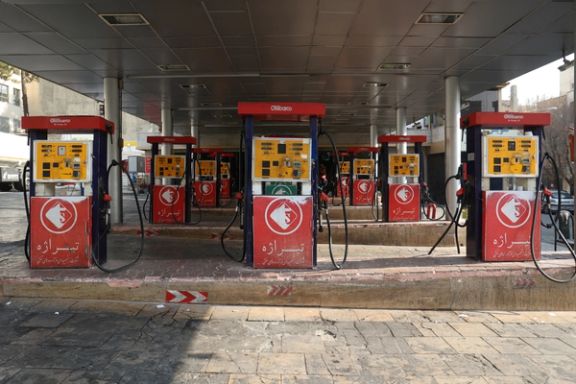
An Iranian parliamentarian claims that the information security cooperation agreement between Iran and Russia is advantageous for Tehran in spite of ongoing cyber attacks.
In a statement to local media, Abolfazl Amouei, a member of the Iranian Parliament and spokesperson for the National Security Commission stated that "Russia is contributing to the cybersecurity of the Islamic Republic of Iran."
The agreement, which focuses on information and intelligence cybersecurity, was proposed by the Iranian government last year. Despite facing accusations of extensive cyber attacks, Iran received parliamentary approval for the bill in December.
The approved bill, originating from an agreement signed three years ago by former Iranian Foreign Minister Mohammad Javad Zarif and Russian Foreign Minister Sergei Lavrov, consists of nine articles. It primarily addresses joint efforts to counter cyber threats, strengthen information security measures, and foster cooperation between the two nations. Notably, the legislation includes a clause specifying the exchange of information and collaborative prosecution of criminal offenses between Iran and Russia.
The deepened political, military, communication, and cyber ties between Tehran and Moscow have elicited concerns among Western nations and their allies. Microsoft's Threat Analysis Center (MTAC) recently issued a warning about potential collaborative efforts by Russia, Iran, and China to influence upcoming elections, including the 2024 United States elections. The warning highlighted the possibility of authoritarian regimes targeting "election infrastructure, campaigns, and voters" through cyber means.
Iran's government networks have been hit multiple times by hacking groups, increasing in the wake of the 2022 uprising, while in December, its gas station networks were hit, reducing activities by 70 percent.

While the UK is preparing for direct strikes against Iran-backed Houthis, who are attacking and hijacking ships in the Red Sea, Tehran denies any involvement.
Iran's Foreign Ministry Spokesman Nasser Kanaani said Monday, “Recent movements by the United States and the United Kingdom in the Red Sea threaten the security of the region.”
The Times reported on Monday that the UK military is gearing up for a series of airstrikes against Yemen's Houthis. The plan involves collaboration with the US and potentially another European country to launch a barrage of missiles at predetermined targets, either in the sea or within Yemen, where the militants are based.
According to British Defense Secretary Grant Shapps, “If the Houthis continue to threaten lives and trade, we will be forced to take the necessary and appropriate action.” Writing in the Daily Telegraph, Shapps said the UK is "willing to take direct action" and "won't hesitate to take further action to deter threats to freedom of navigation in the Red Sea.”
The Times said the UK and US are about to issue an ultimatum against attacking commercial vessels, citing a UK government source as saying that the statement would be a “last warning” and if the Houthis failed to stop the attacks, the response would likely be “limited” but “significant”.
Also on Sunday, British Foreign Secretary David Cameron said he had a phone call with Iranian Foreign Minister Hossein Amir-Abdollahian about the attacks in the Red Sea, “which threaten innocent lives and the global economy.” Cameron said he made clear to his counterpart that “Iran shares responsibility for preventing these attacks, given their long-standing support to the Houthis.”
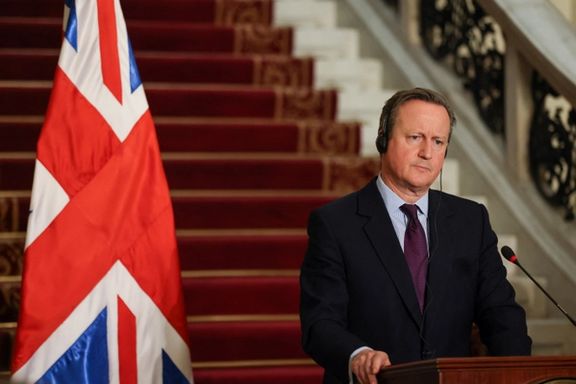
Iran's state media quoted Amir-Abdollahian as saying, "The Israeli regime cannot be allowed to commit massacres of women and children and genocide in Gaza and set the region on fire, while the stopping of a Zionist ship in the Red Sea is seen as endangering the security of this economic waterway." No official readout of the call was released to the media.
During his Monday press conference, Kanaani again denied Tehran’s role in the attacks, despite saying that such accusations by the UK lack substance because the UK has a clear role in the Middle East's long standing crisis. Meanwhile, Iran’s Supreme Leader Ali Khamenei said that the Islamic Republic should continue its support for the “Resistance Front”, referring to the regime’s proxies.
Since the Gaza war broke out on October 7, sparked by Hamas’s invasion of Israel, Iran’s Yemeni proxy announced it would be joining the war on Israel in a bid to force a ceasefire amid Israel's relentless retaliatory attacks. Missiles and drones have been targeting Israeli soil as well as international shipping and US interests. Following the US support of Israel’s right to defend itself in the wake of the October 7 attacks, which saw 1,200 mostly civilians murdered and 240 or more taken hostage, the US has come under further attacks in Iraq and Syria.
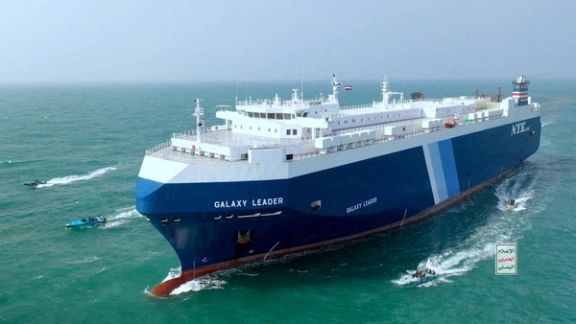
The escalation in the maritime route which accounts for around 12 percent of global trade and oil, connecting Asia to Europe, has led the US to form a more than 20-member international coalition in the face of the aggression, Operation Prosperity Guardian. Several shipping companies have either ceased activity or taken longer routes, causing major delays and costs to journeys.
According to The Times, eight of the 20 ships attacked in the 30 days before Christmas were either UK-registered, had British citizens in their crew or carried goods for the UK.
As the UK and the US reportedly attempt to persuade other European countries to collaborate in forthcoming operations to secure the Red Sea, one of the world's most crucial maritime trade routes, Khamenei’s mouthpiece, the hardliner Kayhan daily proudly proclaimed the success of their "resistance doctrine" on Monday. The paper proclaimed that the region has been transformed and "Soleimanicized", referring to the slain IRGC-Quds force commander seen as the architect of Iran’s network of proxy militias.
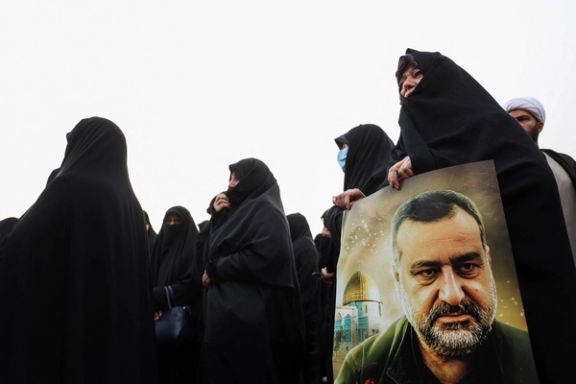
After Iran International exposed the inner circle of Iran’s top military man in Syria, eliminated by Israel this week, it is believed they will be Israel's next potential targets.
Israeli network i24 News reported on Sunday that following the killing of senior Iranian Revolutionary Guard general Razi Mousavi in an Israeli airstrike, his close aides may be next on Israel's hit list. The report by the Israeli website, which cited Iran International as the source of the information, was picked up by Iranian state media as “the four IRGC-Quds Force members on Israel’s kill list.”
Iran International’s Mojtaba Pourmohsen has exclusively reported on Iran’s network of arms smuggling into Syria via passenger planes and then to Lebanon and has identified several key members of the team. The operation was overseen by Razi Mousavi, prompting speculations that his deputies are going to run the operation after his death.
Abdollah Ebadi is Mousavi’s deputy who transfers weapons from Iran to Syria via commercial flights. His right hand, identified as Zein Shams Abu Adnan, is a key figure of the so-called ‘Relief Office’ of the operation – apparently a cover name for IRGC-Quds Force Unit 2250. Masoud Katbi is another deputy who used to head the transfers division and has been recently replaced by Hadi Feizabadi.
Unit 2250 is tasked with delivering all the cargo intended for Tehran's proxy forces in the port of Latakia, a target of repeated Israeli attacks. In December 2021, Israel hit containers of Iranian munitions being unloaded at the port.
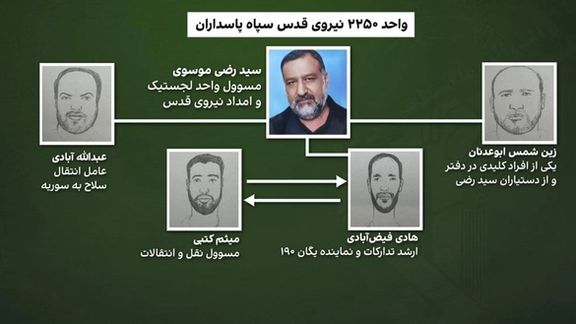
Israel has not officially claimed responsibility for the targeted killing, but it has always insisted that it seeks to prevent entrenchment of Iran-backed forces near its borders. It has been mounting attacks in Syria for years against Iranian and Iran-backed forces that have deployed there presumably to support Syrian President Bashar al-Assad.
However, Israeli Prime Minister Benjamin Netanyahu said Saturday that Israel “acts against Iran all the time, everywhere, in every way,” adding that Israel is “landing heavy blows against Hezbollah, eliminating many terrorists and destroying the enemy’s capabilities.”
“If Hezbollah expands the war, it will receive blows it never dreamed of – and so will Iran... Iran leads the axis of evil and aggression against us on the various fronts,” he stated.
In recent years, Israel has intensified strikes on Syrian airports to disrupt Tehran's increasing use of aerial supply lines to deliver arms to allies in Syria and Lebanon including Hezbollah. Following increasing disruptions to ground transfers, Tehran has adopted air transport as a more reliable means of ferrying military equipment to its proxy militias.
Since October 7, when Iran-backed Islamist group Hamas declared war on Israel, Tehran’s proxies have intensified attacks on US and Israeli targets across the region to pressure Israel into ceasing its retaliatory offensive in Gaza. Iran denies involvement in the October 7 attack but cheers Hamas killings and pledges unwavering support to any group that acts against Israel and US forces.
The death of Razi Mousavi on December 25 is seen as a blow to the Iranian regime’s ability to strengthen and supply its proxy forces in the region. Iran has vowed revenge for the targeted killing, similar to a US air strike that killed Iran’s Quds Force commander Qasem Soleimani in January 2020 in Baghdad.
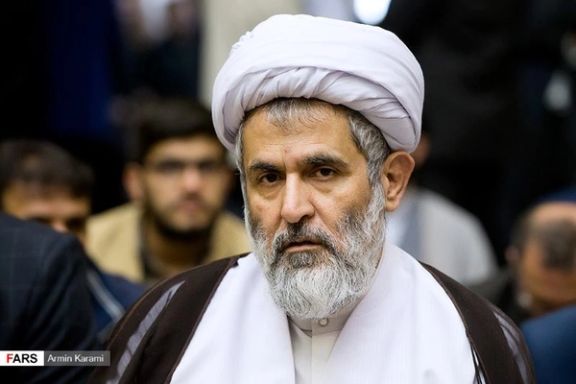
A former IRGC official claims that Razi Mousavi, who was recently killed in Syria, played a key role in direct confrontations with Israel.
Hossein Taeb, former head of the Islamic Revolutionary Guard Corps' (IRGC) Intelligence Organization, asserted on Sunday that Mousavi's death will intensify the resolve of the resistance movement against Israel.
Mousavi, reportedly targeted in an Israeli airstrike, is praised by the Iranian regime for his efforts in strengthening Iran's proxy forces of the "Axis of Resistance" in the region. The loss is deemed a setback for Iran, particularly in the context of the ongoing conflict between Israel and Hamas.
The advisor to the commander-in-chief of the Revolutionary Guards also vowed that such actions would not go unanswered.
In the midst of the ongoing Gaza war initiated by Hamas on October 7 against Israel, Iran-backed militias from Syria, Iraq, Yemen, and Lebanon have entered the conflict. Additionally, reports suggest that 11 senior officers of Iran's Revolutionary Guards fell victim to an Israeli airstrike on Damascus airport on Thursday.
Israel, traditionally reserved in commenting on such military operations, reiterates its commitment to preventing Iran's military entrenchment in Syria. Since 2017, Israel has consistently targeted Syrian locations to thwart Iran's attempts to bolster its military footprint and pose a threat to its northern borders. Notably, Syrian airports, allegedly facilitating the transportation of weapons to proxy forces by Iran, have become frequent targets.
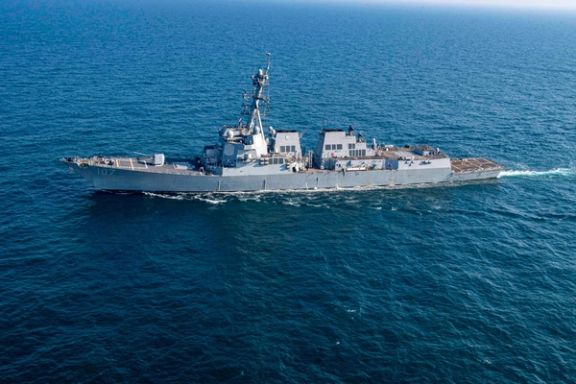
As Red Sea tensions rise, the US sank three Houthi boats on Sunday foiling a ship hijacking attempt, but Tehran vowed continued support for its militant proxies.
Two distress signals were sent out by the MAERSK Hangzhou within 24 hours, the first signalling a hit by a missile, and the second, indicating a hijacking attempt.
As the attack was unfolding, Iran’s Supreme Leader Ali Khamenei in Tehran said that the Islamic Republic should continue its support for the “Resistance Front”, referring to the regime’s proxy.
US Centcom said the attack marked the 23rd instance of aggression against international shipping since November 19.
With well over 100 attacks on US facilities in the Middle East since the Gaza war broke out on October 7, sparked by Hamas’s invasion of Israel, it is a rare action from the US which until now, has tried to avoid military clashes.
Following the Israeli military operation in Gaza, Iran’s Yemeni proxy announced it would be joining the war on Israel, targeting shipping in the Red Sea and surrounding area.
Attempting to force Israel to agree to a full ceasefire, missiles and drones have been targeting Israeli soil as well as international shipping and US interests. Following the US support of Israel’s right to defend itself in the wake of the October 7 attacks, which saw 1,200 mostly civilians murdered and 240 or more taken hostage, the US has come under further attacks in Iraq and Syria.
The escalation in the maritime route which accounts for around 12 percent of global trade and oil, connecting Asia to Europe, has led the US to form a more than 20-member international coalition in the face of the aggression, Operation Prosperity Guardian. Several shipping companies have either ceased activity or take longer routes, causing major delays and costs to journeys.
Denmark, the owner/operator of the latest targeted vessel, is the newest member of the coalition, though due to the sensitivity of the region, not all countries have openly stated membership.
Following the initial strike on the Singapore-flagged container ship which claimed it had been hit by a missile, the US Navy shot down two anti-ship ballistic missiles. No injuries were reported and the ship was still seaworthy.
But later, in the early hours of Sunday morning, a second distress call revealed four Houthi small boats attempting to hijack the ship, as they fired with small arms at the ship, getting to within 20 meters and attempting to board.
“A contract embarked security team on the MAERSK Hangzhou returned fire. US helicopters from the USS EISENHOWER (CVN 69) and GRAVELY (DDG 107) responded to the distress call and in the process of issuing verbal calls to the small boats, the small boats fired upon the US helicopters with crew served weapons and small arms,” the statement said.
“The US Navy helicopters returned fire in self-defence, sinking three of the four small boats, and killing the crews. The fourth boat fled the area. There was no damage to US personnel or equipment.”
Holding Iran accountable, British Foreign Secretary David Cameron said on Sunday that he had told Iranian Foreign Minister Hossein Amir-Abdollahian in a call that Iran should help stop the Houthi attacks in the Red Sea.
"I made clear that Iran shares responsibility for preventing these attacks, given their long-standing support to the Houthis," Cameron said in a X, adding that the attacks "threaten innocent lives and the global economy”.
Iran expert Jason Brodsky, said the latest US action was “a step in the right direction” in terms of deterrence but said “without more decisive action including against the IRGC, it won't alter the fundamentals of the deterrence deficit in the Red Sea”.